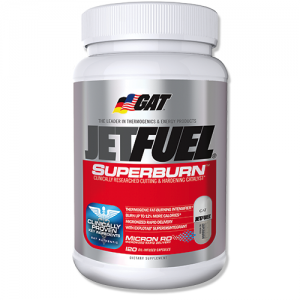
TINA’s Take: Will Pinterest Enforce Its Ban on ALL Weight-Loss Ads?
Despite the splashy announcement, weight-loss ads persist on social media platform.
Amphetamine-like ingredient found in Acacia rigidula dietary supplements could trigger harmful reactions.
|
A Harvard doctor is calling on the FDA to take aggressive action to protect consumers from a synthetic stimulant similar to amphetamines discovered in some weight-loss, sports, and brain function supplements that could trigger dangerous reactions.
Dr. Pieter Cohen, assistant professor at Harvard Medical School and internist at the Cambridge Health Alliance, co-authored a study published Tuesday that discovered the stimulant — known as BMPEA (beta-methylphenylethylamine) — in supplements labeled Acacia rigidula. He said in an interview on the CBS Morning News that the FDA has “completely abdicated” its responsibility to warn the public.
“We need the FDA to be enforcing the law,” Cohen said in the CBS interview. “Their responsibility is to make sure that dangerous ingredients are not present in supplements and they have completely dropped the ball.”
Cohen noted in an interview with TINA.org Tuesday that two key FDA officials overseeing supplements had come from within the dietary supplement industry — Daniel Fabricant, who until 2014 ran the agency’s division of dietary supplements, and Cara Welch, who is now acting director of the division for the FDA. Both Fabricant and Welch worked for the Natural Products Association, which lobbies in support of dietary supplements. After leaving the FDA, Fabricant returned to the Natural Products Association and was named CEO.
He said the revolving door between the FDA and lobbyists had led to inaction by the agency on dietary supplements.
“It’s no surprise that nothing is getting done,” he said.
In 2012 the FDA discovered BMPEA in Acacia rigidula products but Cohen said the agency did not follow up with sufficient action.
His co-authored study, published in the journal Drug Testing and Analysis, found that 11 supplements out of 21 tested that are labeled as having Acacia rigidula — a perennial shrub found in Texas and Mexico — actually contained BMPEA. He said BMPEA is being used to replace other popular weight-loss and body building stimulants, such as ephedra and DMAA, and has not been found to be safe for human consumption. In 2004, the FDA banned the sale of dietary supplements containing ephedra and in 2013 the agency issued a warning to consumers about DMAA and notified companies that dietary supplement products containing the substance must be taken off the market.

The study tested Acacia rigidula supplements found on shelves between January and April 2014. The products found to have BMPEA, which has been shown to increase heart rates and blood pressure in animals, include Fuel T-300, Jet Fuel Superburn, Aro Black Series Burn and Yellow Scorpion.
Outside the U.S., regulators have taken more forceful action against Acacia rigidula products. In December, Canada recalled Jet Fuel Superburn saying it was a health risk. Europe has banned the sale of Acacia rigidula until there is evidence it is safe. BMPEA is banned by the World Anti-Doping Agency.
“The FDA not only has to move against BMPEA, but they need to move against this product to set an example of what are they going to do when other companies are introducing new stimulants because, of course, other ones are just going to pop up trying to replace ephedra, trying to replace DMAA,” Cohen said in the CBS News interview.
The study called on manufacturers to immediately recall all supplements containing BMPEA as an ingredient in dietary supplements and advised consumers to avoid all supplements labeled as containing Acacia rigidula.
Cohen also warned consumers to be cautious about all weight-loss supplements:
There’s not a single weight loss supplement on the market that’s legal and that has been shown to lead to weight loss in humans. So, there’s two options. One is that the supplement is not going to work and you are just wasting your money. And the other option is that it’s actually working, leading to short term weight loss but exposing you to serious long-term risk.
Juli Putnam, a spokeswoman for the FDA, said the agency hasn’t yet identified any health concerns regarding BMPEA.
“While our review of the available information on products containing BMPEA does not identify a specific safety concern at this time, if we determine that regulatory action is appropriate at a later time, the FDA will consider taking such action to protect consumers,” she said in a statement to TINA.org.
Hi-Tech Pharmaceuticals, which manufactures a majority of the supplements investigated in the study and supplies ingredients for other Acacia rigidula products, was ordered by the FTC in 2014 to pay $40 million for continuing to deceptively market weight-loss supplements in violation of a 2008 court order. That court order banned the company from making efficacy and safety claims without sufficient scientific substantiation and to recall four of its products. In September 2014, Hi-Tech President Jared Wheat was found in civil contempt by a district court regarding the court order in the FTC case, but on appeal, the 11th Circuit U.S. Court of Appeals this May vacated the sanctions and remanded the case back to the district court.
In 2013, the FDA seized more than $2 million worth of products from Hi-Tech that contained DMAA. Hi-Tech is suing the FDA over the seizure and the case is still pending. The company has also filed a lawsuit against Cohen and the other co-authors of the Harvard study, alleging they published “false and malicious statements about the safety and efficacy of dietary supplements containing Acacia rigidula manufactured by High-Tech and others” and contending that BMPEA is a naturally occurring compound of Acacia rigidula.
Jared Wheat, president of Hi-Tech, defended the safety of its products in a press release issued Tuesday, saying the company conducted three studies on Acacia rigidula and none found any serious adverse events “other than possibly a jitter or shake which is common amongst stimulants.” He said large pharmaceutical companies are trying to stifle research and advances in dietary supplements.
Earlier this month, Hi-Tech touted its Thermo-RX brand of Acacia Rigidula Extract, saying that Acacia rigidula is a superior alternative to ephedra and a “quantum leap in the field of weight loss.”
Several recent investigations of dietary supplements, which are not held to the same pre-market regulatory standards as FDA-approved drugs, have found that many contain hidden drugs and other ingredients. Read more of TINA.org’s coverage of dietary supplements here.
This story was updated on 5/7/2015.
Despite the splashy announcement, weight-loss ads persist on social media platform.
Happy National Women’s Health Week.
The company’s signature pitch — lose 20 to 40 pounds in 40 days — lacked scientific support, the FTC alleged.


